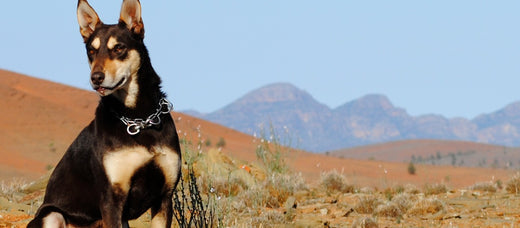
Caring for animals in hot weather

Are you thankful to live in an air conditioned house on a hot summer day? Especially if you’ve been busy outside, it’s such a relief to step inside and feel the cool breeze rush over you.
Sometimes though we have furry or feathered family members who don’t get to appreciate the marvels of modern technology – so it’s important to consider their comfort and wellbeing as well!
- Avoid exercising animals during the hottest part of the day. Walk dogs and ride horses in the early morning or evening.
- Unsure if it’s too hot to walk your dog? Use the 5 second rule. Place the back of your hand on the pavement for 5 seconds – if you can’t handle the heat, neither can your dog. This is important to remember if your dog travels in the back of a ute as well!

- NEVER leave your dog in a hot car – it can take only six minutes for a dog to overheat and die in a locked car. Even in mild 22 degree heat, the inside of a car can reach temperatures of up to 47 degrees Celsius!
- Provide animals with plenty of fresh water – consider popping some ice cubes into their water bowl to help cool it down (not cold). Animals are less likely to drink warm or dirty water. If you’re leaving animals unattended, make sure they have more than one bowl of water in case one gets tipped over!
- Consider freezing a bottle of water overnight and wrapping it in a towel – place this in a pets favourite spot, giving them a cool resting place. Avoid generic frozen gel packs as the gel can be toxic if eaten! We sell a great alternative called MyM8 Cool Mats, that contain non-toxic gel and are made for animals to rest on (and they work without being wet or refrigerated).

- For smaller pets in cages, you can wet a lightweight cloth with cool water and place it over one side of their hutch. Make sure they still have plenty of airflow and that you only use a lightweight cloth – nothing heavier than a tea towel.
- Bring your pets inside if you can, even if it’s just into a room such as the laundry. If they’re an outside only pet, ensure they have easy access to plenty of shelter – ideally a nice shady area that is well ventilated.
- Add electrolytes to your pet’s diet during summer. We offer electrolyte supplements for a variety animals, such as poultry, dogs and horses. These can be added to food or water to help restore fluid and electrolytes, aiding in recovery from fatigue and dehydration.

|
 |
 |
- Learn how the early warning signs of dehydration will present in your pet. If you see severe signs of physical distress – particularly muscle cramps, seizures or losing consciousness – immediately contact your vet. Dehydration and heat stroke can be fatal!
- Our native wildlife can appreciate a helping hand as well. Leave bowls of fresh clean water out in shady locations for our natives. Shallow dishes are better for smaller animals, but if you use a larger container make sure to provide a rock or stick so that anyone who falls is will be able to climb back out.
- If you see sick or injured wildlife, you can call RSPCA’s 24 hour hotline on 1300 477 722 or Fauna Rescue of SA on 8289 0896.
